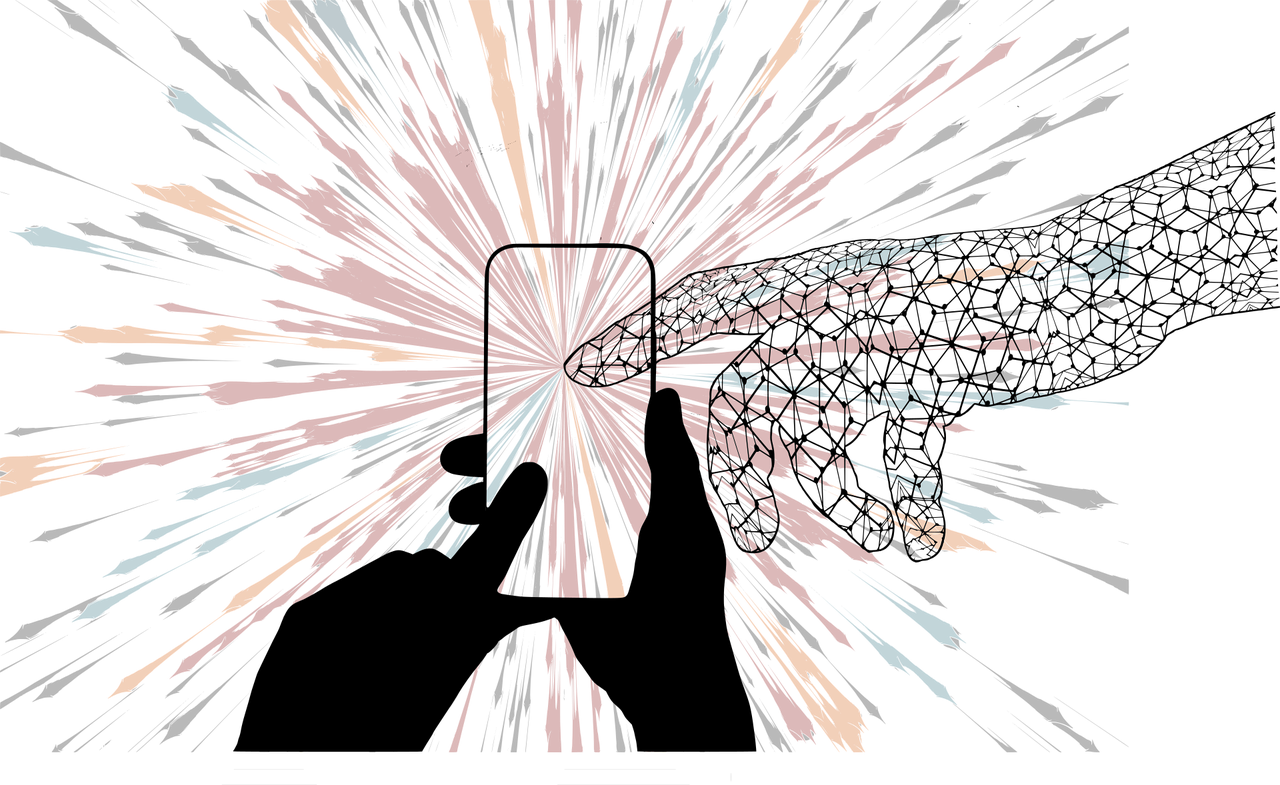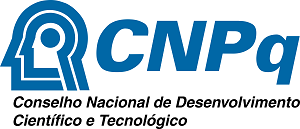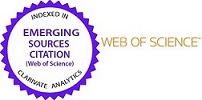Vício em Internet e identidade de rede: características de desenvolvimento em jovens estudantes
DOI:
https://doi.org/10.25053/redufor.v9.e14244Palavras-chave:
Dependência da Internet, Vício em Internet, Jovens, Estudantes Universitários, Qualidades PessoaisResumo
O objetivo do estudo é detectar o nível de dependência da Internet em jovens estudantes, identificar as características da formação da identidade da rede e comprovar a relação entre os traços de personalidade e o comportamento de dependência. O artigo relata os resultados de um estudo empírico de estudantes universitários de pedagogia (n=248), utilizando uma bateria de técnicas de diagnóstico e análise secundária. Os resultados mostram um nível moderado de dependência da Internet na maioria dos alunos pesquisados e confirmam sua associação com traços de personalidade - extroversão/introversão, neuroticismo e psicoticismo, comportamento manipulador, abertura à experiência, atitude situacional em relação a normas e valores para atingir os objetivos, aprovação das ações pelos usuários de referência da rede social e formação da imagem e da reputação na Internet. Entre as causas do vício em Internet estão a falta de gerenciamento do tempo, o descontrole da permanência on-line; a dependência psicológica; a falta de disposição para interromper outras atividades e a evitação deliberada; e a agressão verbal em caso de incapacidade de usar recursos on-line. Os autores concluem que programas de prevenção secundária direcionados, como intervenções educacionais e atividades de conscientização, podem reduzir efetivamente a dependência da Internet e seus riscos associados entre estudantes universitários, conforme evidenciado por melhorias nas métricas de identidade da rede e níveis mais baixos de dependência durante o estágio de controle.
Downloads
Referências
AKBARI, M. et al. The Big Five personality traits and online gaming: A systematic review and meta-analysis. Journal of Behavioral Addictions, v. 10, n. 3, p. 611-625, 2021. DOI: https://doi.org/10.1556/2006.2021.00050 DOI: https://doi.org/10.1556/2006.2021.00050
AMINOV, S. R.; TIMOSHINA, V. V. On the issue of Internet addiction to social networks among students in Surgut: Experience of sociological research. Russian Economic Bulletin, v. 4, n. 1, p. 101-107. (In Russian)
BELOZEROVA, L. A.; PANFEROVA, O. O. (2022). Personal characteristics of students with different severity of Internet-dependent behavior. Scienceosphere, v. 12, n. 2, p. 61-64, 2021. (In Russian)
CHEN, S. H. et al. Development of Chinese Internet addiction scale and its psychometric study. Chinese Journal of Psychology, v. 45, p. 279-294, 2003. DOI: https://doi.org/10.1037/t44491-000 DOI: https://doi.org/10.1037/t44491-000
CHERNAVIN, Yu. A. (2022). The communicative status of an individual in a digital society. Digital Sociology, v. 5, n. 2, p. 33-42, 2022. DOI: https://doi.org/10.26425/2658-347X-2022-5-2-33-42 (In Russian) DOI: https://doi.org/10.26425/2658-347X-2022-5-2-33-42
CHEW, P. K. H. A meta-analytic review of Internet gaming disorder and the Big Five personality factors. Addictive Behaviors, v. 126, art. 107193, 2022. DOI: https://doi.org/10.1016/j.addbeh.2021.107193 DOI: https://doi.org/10.1016/j.addbeh.2021.107193
DREPA, M. I. Psikhologicheskaya profilaktika Internet-zavisimosti u studentov [Psychological prevention of Internet addiction among students]. Abstract of dis. ...Cand. Psycho. Sci. – Pyatigorsk State Linguistic University, Pyatigorsk, 2010.
DUONG, X. L.; LIAW, S. Y.; AUGUSTIN, J. P. M. How has Internet addiction been tracked over the last decade? A literature review and 3C paradigm for future research. International Journal of Preventive Medicine, v. 11, art. 175, 2020. DOI: https://doi.org/10.4103/1673-5374.300434
GOLDBERG, I. K. Questions & answers about depression and its treatment: A consultation with a leading psychiatrist. Philadelphia: Charles Press, 1993.
GRISHAEVA, S. A.; KLYUVAEV, K. V. Communicative practices of young people in social networks. Digital Sociology, v. 2, n. 3, p. 4-9, 2019. DOI: https://doi.org/10.26425/2658-347X-2019-3-4-9 DOI: https://doi.org/10.26425/2658-347X-2019-3-4-9
KAMENEVA, T. N. et al. Problem of spreading fake information in the Internet space analysis. Digital Sociology, v. 6, n. 3, p. 73-78, 2023. DOI: https://doi.org/10.26425/2658-347X-2023-6-3-73-78 DOI: https://doi.org/10.26425/2658-347X-2023-6-3-73-78
KOLMOGORTSEVA, A. A. Psikhologicheskiye osobennosti lichnosti kak prediktory internet-zavisimosti [Psychological characteristics of personality as predictors of Internet addiction]. Dis. ...Cand. Psycho. Sci. – South Ural State University (National Research University), Chelyabinscsk, 2021.
KORYAGINA, T. M. Psikhologicheskiye prediktory internet-zavisimosti studentov [Psychological predictors of Internet addiction among students]. Abstract of diss. …Cand. Psycho. Sci. – Peoples' Friendship University of Russia (RUDN University), Moscow, 2019.
LOSKUTOVA, V. A. Internet-zavisimost' kak forma nekhimicheskikh addiktivnykh rasstroystv [Internet addiction as a form of non-chemical addictive disorders]. Dis. ...Cand. Med. Sci. – Novosibirsk State Medical Academy, Novosibirsk, 2004.
LUCHANINOVA, V. N. et al. Health state of children and teenagers and factors affecting on its formation. Gigiena i sanitariya, v. 96, n. 6, p. 561-568, 2017. DOI: http://dx.doi.org/10.18821/0016-9900-2017-96-6-561-568 (In Russian) DOI: https://doi.org/10.18821/0016-9900-2017-96-6-561-568
MAK, K. K. et al. Associations of personality traits with Internet addiction: A cross-cultural meta-analysis with a multilingual approach. Cyberpsychology, Behavior, and Social Networking, v. 24, n. 12, p. 777-798, 2021. DOI: https://doi.org/10.1089/cyber.2021.0071 DOI: https://doi.org/10.1089/cyber.2021.0071
MERKURYEVA, Y. A. Differentsirovannaya psikhologicheskaya korrektsiya rasstroystv privychek i vlecheniy v forme internet-zavisimosti u podrostkov [Differentiated psychological correction of disorders of habits and desires in the form of Internet addiction in adolescents]. Abstract of diss. ...Cand. Psycho. Sci. – A. I. Evdokimov Moscow State Medical and Dental University, Moscow, 2022.
PETROVA, Y. V. Tsennostno-smyslovyye faktory professional'nogo samoopredeleniya podrostkov s problemnym ispol'zovaniyem interneta [Value and semantic factors of professional self-determination of adolescents with problematic Internet use]. Abstract of diss. ...Cand. Psycho. Sci. – Russian State Pedagogical University named after A. I. Herzen, St. Petersburg, 2022.
RACHUBIŃSKA, K. et al. Analysis of the relationship between personality traits and Internet addiction. European Review for Medical and Pharmacological Sciences, v. 25, n. 6, p. 2591-2599, 2021. DOI: https://doi.org/10.26355/eurrev_202103_25422
ROSTOVTSEVA, M. V. Svyaz' internet zavisimosti s trevozhnost'yu i potrebnost'yu v obshchenii u studentov [The connection between Internet addiction and anxiety and the need for communication in students]. In: Aktual'nyye psikhologo-pedagogicheskiye, filosofskiye, ekonomicheskiye i yuridicheskiye problemy sovremennogo rossiyskogo obshchestva [Current psychological, pedagogical, philosophical, economic and legal problems of modern Russian society]: Collective monograph. Iss. 4. Ulyanovsk: Zebra, 2019. p. 408-428.
SEMENYAK, I. V. Psikhologicheskiye prediktory zavisimogo povedeniya [Psychological predictors of addictive behavior]. Abstract of dis. ...Cand. Psycho. Sci. – Peoples' Friendship University of Russia (RUDN University), Moscow, 2022.
SHUTOVA, N. V.; BARANOVA, Yu. M. Risk assessment of internet addiction for the mental health of adolescents. Hygiene and Sanitation, v. 96, n. 6, p. 568-572, 2017. (in Russian) DOI: https://doi.org/10.18821/0016-9900-2017-96-6-568-572
SMOLENTSEVA, Yu. N. Internet addiction of young people: Problem statement. Social Sciences and Humanities: Theory and Practice, n. 1(5), p. 192-203, 2021.
TSYGLAKOVA, E. A.; BESSCHETNOVA, O. V.; VIKULOV, A. V. The study of internet addiction among students of a pedagogical university. Mir nauki, kultury, obrazovaniya, v. 1, n. 104, p. 20-25, 2024. DOI: https://doi.org/10.24412/1991-5497-2024-1104-20-25
VARLAMOVA, S. N.; GONCHAROVA, E. R.; SOKOLOVA, I. V. Internet addiction of young people in megacities: Criteria and typology. Monitoring obshchestvennogo mneniya: ekonomicheskie i social'nye peremeny, n. 2, p. 165-182, 2015. DOI: https://doi.org/10.14515/monitoring.2015.2.11 DOI: https://doi.org/10.14515/monitoring.2015.2.11
VOYSKUNSKY, A. E. Theories of addiction and presence related to behavior on the Internet. Medicinskaya psihologiya v Rossii, n. 4(33), p, 6-10, 2015.
YOUNG, K. S. Psychology of computer use: XL. Addictive use of the Internet: A case that breaks the stereotype. Psychological Reports, v. 79, n. 3, p. 899-902, 1996. DOI: https://doi.org/10.2466/pr0.1996.79.3.899 DOI: https://doi.org/10.2466/pr0.1996.79.3.899
ZHUKOVA, M. V. et al. The relationship between personality traits of education students and the degree of their Internet addiction. Science for Education Today, v. 13, n. 3, p. 28-43, 2023. DOI: http://dx.doi.org/10.15293/2658-6762.2303.02 DOI: https://doi.org/10.15293/2658-6762.2303.02

Downloads
Publicado
Como Citar
Edição
Seção
Licença
Copyright (c) 2024 Ol'ga Besschetnova, Elena Tsyglakova, Alexey Vikulov

Este trabalho está licenciado sob uma licença Creative Commons Attribution 4.0 International License.
Os autores possuem direitos autorais dos seus textos:
A revista Educação & Formação permite ao autor os direitos de publicação, no entanto, recomenda um intervalo de dois anos para o caso de republicação.
Os nomes e endereços informados nesta revista serão usados exclusivamente para os serviços prestados por esta publicação, não sendo disponibilizados para outras finalidades ou a terceiros.






















